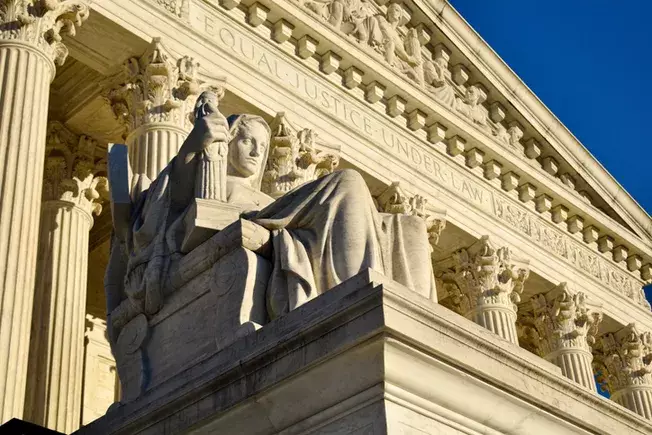The discourse surrounding TikTok and its future in the United States has escalated recently, with the clock ticking down to a potential ban that could affect millions of American users. With just a few days left for the app to navigate legal challenges and potential avenues for operation, TikTok is at a pivotal moment in its existence in the American digital landscape.
The “Protecting Americans from Foreign Adversary Controlled Applications Act” has set the stage for a critical showdown, mandating the sale of TikTok to a U.S. owner by January 19th. The law stems from alarm regarding data security and the app’s reported connections to the Chinese government. Lawmakers assert that TikTok poses a national security risk, as it can be utilized for spying or even disseminating propaganda. Such concerns have galvanized bipartisan support for measures aimed at limiting foreign influence over technology that collects sensitive information from American users.
Yet, this impending deadline poses significant questions about freedom of expression in light of national security. TikTok’s defenders argue that banning the app could infringe on First Amendment rights. However, the judiciary system tends to prioritize national security concerns, acknowledging that the government often has broad latitude when it comes to matters perceived as threats to the populace.
Recent developments illustrate a complex legal landscape for TikTok. After an unfavorable ruling from the U.S. Court of Appeals for the District of Columbia, TikTok has turned to the U.S. Supreme Court in hopes of reversing the decision. However, initial reactions from justices suggest skepticism about TikTok’s chances for a favorable ruling. Questions posed during the hearing reflect concerns primarily centered around national interests, hinting at possible judicial inertia against the app’s plights.
The implications of the Supreme Court’s eventual decision are profound, potentially sealing TikTok’s fate just as millions of users are in their final moments of accessing the platform. Even if the court were to side with TikTok, the assurances regarding its operational viability in the U.S. remain thin and fraught with uncertainty.
Compounding this legal quagmire is the potential influence of former President Donald Trump, who has voiced a desire to protect the app. His administration’s wish to intervene adds another layer of complexity, as his team has filed an amicus brief to delay a final decision until after Trump’s inauguration. Advocating for TikTok, Trump’s team might seek a congressional reversal or soft enforcement of the law from the Justice Department. However, the unyielding nature of the original proposal—as noted by its unanimous passage—makes such maneuvers precarious and unlikely.
Moreover, any success Trump might find in delaying or derailing the bill would only serve as a stopgap solution rather than a viable long-term strategy for TikTok. Without concrete action towards a sale or substantial legal victories, the app’s operational future looks bleak.
For now, users are left in limbo. They may witness a gradual decline in TikTok’s functionality rather than a sudden disappearance. As ByteDance ceases updates and backend support for the app, its users could find themselves increasingly unable to post, view, or engage with content. This decline will have repercussions not only for casual users but also for influencers and brands that have cultivated significant followings on the platform.
In this climate, TikTok’s last-minute negotiations or strategic decisions might be its only lifeline, but opted avenues for salvation appear limited. A consortium of U.S. investors has expressed interest in acquiring the company, yet the lack of engagement from ByteDance confirms immediate deadlines create hurdles too steep to cross swiftly. In the coming days, how this all unfolds will significantly shape the future of social media in the U.S., and the very definition of user trust in digital platforms entwined with national security debates.


Leave a Reply
You must be logged in to post a comment.